DR Congo’s Coltan Mines: The Hidden Cost of Your Smartphone
DR Congo’s Coltan Mines: The Hidden Cost of Your Smartphone
In the heart of eastern Democratic Republic of Congo, amidst the sprawling hills of North Kivu, lies the Rubaya mine – a crucial source of coltan, a vital component in the production of the world’s mobile phones and electronic devices. BBC News was granted rare access to this volatile region, revealing a landscape dotted with thousands of pits and tunnels where an immense workforce toils under challenging conditions.
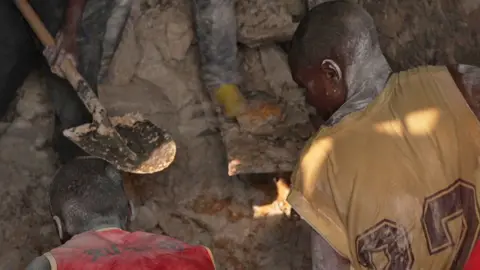
The scale of operation is staggering, with over 10,000 individuals reportedly working daily. Miners descend deep underground, extracting ore with shovels, then hoisting sacks of the precious mineral to the surface. From there, the coltan is washed and filtered by hand, a testament to the sheer human effort involved. Patrice Musafiri, the supervisor of the Rubaya mining site since M23 rebels took control in April last year, highlighted the daily influx of workers and the organization that has been implemented to manage the site.
The terrain itself presents significant challenges, requiring careful navigation. For the miners, the work is not only arduous but fraught with danger. Mineworker Peter Osiasi described the extreme heat and potential presence of harmful gases deep within the mines, emphasizing the need for ventilation systems to continue working. Despite these hardships, Osiasi expressed gratitude for the opportunities mining has provided, enabling him to support his family and consider a future beyond the mines.
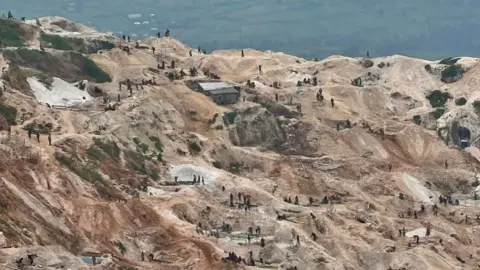
The Rubaya mine is situated in the resource-rich Masisi Hills, an area known to hold approximately 15% of the world’s coltan supply. This strategic importance has historically made the region a contested territory, with various armed groups, including the M23 rebels, exerting control and profiting from the mineral wealth. The recent ceasefire deal signed in Washington, aimed at de-escalating the long-standing instability in eastern DR Congo, brings a glimmer of hope, though the complexities of the conflict, involving ethnic dimensions and numerous rebel factions, remain profound.
The M23, predominantly composed of ethnic Tutsis, has significantly increased its influence, capturing key cities and strategic points. While Rwanda denies accusations of backing the M23, the United Nations has previously detailed the group’s financial reliance on taxing coltan exports, with allegations of funds flowing to Rwanda. The US involvement in the peace process has been linked to securing access to DR Congo’s mineral resources, a move that could reshape international investment in the region.
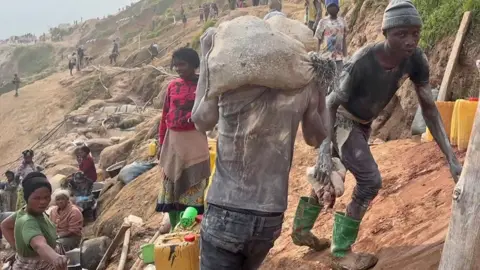
During the BBC’s brief visit, the M23’s control seemed entrenched. The appointed supervisor emphasized the reorganization of the mining operations, highlighting safety measures and the exclusion of armed personnel from the site. He spoke of a functioning mining department that regulates safety and resolves disputes, fostering an environment where diverse groups can mine and trade minerals, with a significant market emerging in Goma.
However, concerns about fair compensation persist. Mineworkers like Mr. Osiasi acknowledged improved conditions due to the semblance of peace but lamented the low pay. The global demand for coltan, driven by the electronics industry, creates a stark contrast with the daily struggles of the miners who extract it. Reports suggest that US companies are increasingly looking to invest in Rubaya’s mining sector, potentially challenging the dominance of Chinese firms.
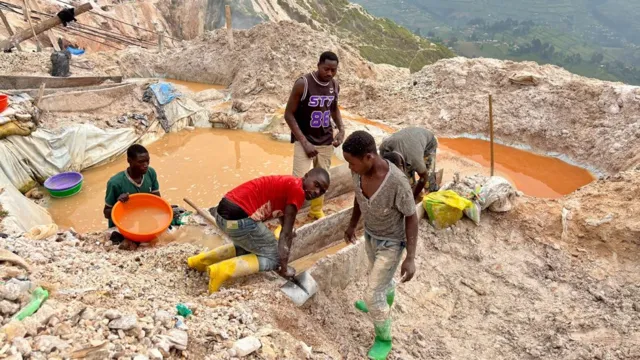
The supervisor expressed openness to foreign investment, provided it prioritizes local development, including job creation, schools, and hospitals, alongside increased wages for miners. The region’s vast mineral wealth has historically benefited armed groups more than the local communities, which often lack basic infrastructure. The potential involvement of American investors could introduce a stabilizing influence, acting as a deterrent against further conflict.
Yet, the practicalities of such investments remain uncertain, given the M23’s continued control. Parallel mediation efforts, including talks led by Qatar, may offer further clarity. While political and armed groups navigate their paths to peace, the people of Rubaya, like many in eastern DR Congo, yearn for an end to the bloodshed and displacement. Their hope is for lasting peace and fair compensation for their labor, a fundamental desire for a better life amidst the global demand for the resources they extract.
Additional reporting by the BBC’s Robert Kiptoo and Hassan Lali
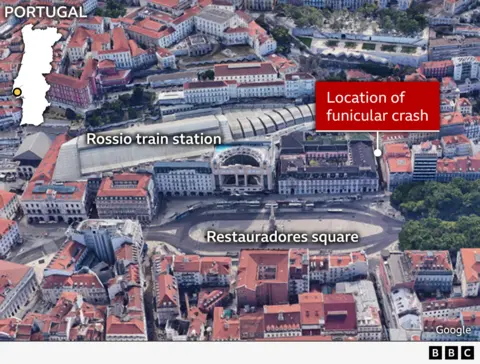

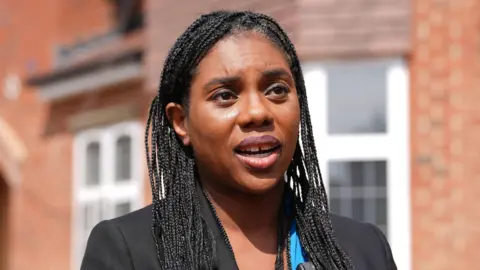
Post Comment